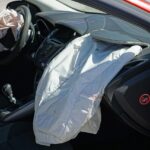Most people probably don’t give car insurance fraud much thought. They will probably never do it (at least intentionally), and assume that the car insurance fraud that others partake in doesn’t really affect them. The truth is, however, that car insurance fraud, in all its forms, hurts everyone. In short, it means higher premiums even for those who have never and will never perpetrate any kind of fraud.

Every state has its own way of dealing with fraud, and even though there are task forces and regulation committees in place to deal with this occurrence, it still happens all the time and causes serious problems for both insurance companies and the honest customers they deal with. It costs insurance companies around $30 billion every year, and these are costs often passed on to the customer.
What Does Fraud Look Like?
Fraud, in its most basic form, is physically or financially hurting someone for the perpetrator’s own gain. This is called hard fraud. Soft fraud, on the other hand, is more common and comes in the form of inflating claims, exaggerating the extent of injuries in an accident, or reporting assets as damaged or missing when they really are not. Both of these types of fraud are criminal offenses that result in probation, fines, community service, or even jail time.
Types of Hard Fraud
Though hard fraud is not as common as soft fraud, it can be far more expensive. Some will even go so far as to stage an accident with a car or walker, planning to have a vehicle stolen in order to be able to file a claim, staging a robbery, and billing for injuries that did not take place or on people that do not even exist.
Types of Soft Fraud
This type of fraud happens more often in the United States and some people may even partake in it without realizing they are doing it. Failing to report drivers in a household, for example, is a common type of soft fraud and one that can occur simply because a family is careless. Other types of soft fraud include reporting that a car is worth more than it is or that a component in it is worth more than it is, as well as lying about the number of miles on a vehicle.









